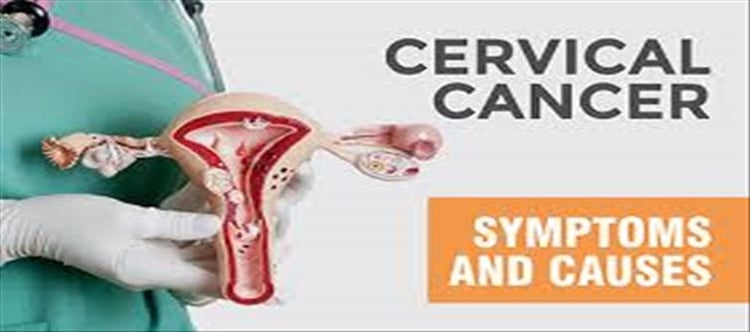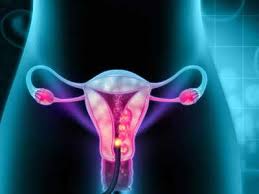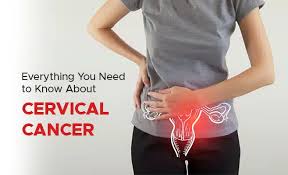Pushpa Telugu Movie Review, Rating
పుష్ప తెలుగు సినిమా రివ్యూ ,రేటింగ్
-
Foxconn May Produce iPads In Tamil Nadu !!?
-
iPhone Pro Models Getting Biggest Price Cut In India !!?
-
Suryakumar Yadav Reflects On 'Special' Bond With Coach Gautam Gambhir !!
-
Realme Buds T310 Expected Price And Availability !!
-
Taapsee Pannu on attending the Olympic Games Paris 2024 !!?
-
Madhuri on shooting for the song in Alaska !! ?
-
Sonakshi Sinha's Bachelorette Was Inspired By Heeramandi? Actress' Photos Make BIG Reveal
-
Hugely reduced prices of iPhones.. This is the right time to buy Boss!
-
AP CM Chandrababu: that's the good news...Rs 3 thousand for each!
-
If Jagan is arrested, Sharmila will benefit.. The plan is not normal!
-
South Comedian Hyper Aadi To Contest MLC Elections For Jana Sena Party?
-
Bandi Saroj Kumar To Release His Next, Parakramam, On Chiranjeevi's Birthday:
-
Janhvi Kapoor BREAKS Silence On Anil Kapoor's Mr India 2:
-
Shehnaaz Gill Recalls Magical Moment Of Justin Bieber's Performance !!
-
Is Sai Pallavi in a relationship with a married actor?
-
what Rajinikanth did to the grandson who told him not to go to school..? Shocked cuties..!
-
WAF vs SFU MCL 2024 Qualifier !!
-
Last day for filing income tax returns... will the deadline be extended?
-
Jasprit Bumrah Highlights the Importance Of 'Shutting The Door' To Negativity !!
-
IND vs BAN Asia Cup 2024 Semifinal 1 !!
-
THIS Bollywood Actor Was Part Of the Army's Quick Reaction Team !!?
-
25 Years Of Kargil War: Fighting Pakistan, Tough Terrain, How Army Heroes Secured India's Roar At Tiger Hill:
-
Level Cross Twitter Review !!
-
Dhiraj Bommadevara and Ankita Bhakat Shine to Secure Direct Quarters Spot in Men's and Women's Archery Events:
-
Farah Khan’s Mother Menaka Irani Passes Away At The Age Of 79
-
'No wedding celebrations planned...'
-
Alia Bhatt Shoots a 'BRUTAL' Action Sequence With Bobby Deol For Alpha Amid High Security:
-
From College Brawls to Political Brawls!!
-
If you keep Rs.100 in this country you will get 2000.. Popular tourist destination:
-
Who Needs Drama When You’ve Got Politics?
-
Riddhima Kapoor told what Raha calls her !!?
-
Raayan: A Family Drama with More Gangs!!
-
Jagan’s selective amnesia in Press meet!!
-
Alarming Cancer Rise in India!!
-
Armaan Malik's Kids To Appear On 'Bigg Boss OTT 3' !!?
-
You can save up to Rs.17,500 under the new tax regime..?
-
Transformers One Will Transform Your September!
-
Javed Akhtar Slams Yash Chopra's 'Jab Tak Hai Jaan': ?
-
Anant Ambani Paints Nita Ambani Yellow With Haldi In A New Viral Video !!
-
Uorfi Javed recently revealed a "disgusting" message !!?
-
France Rail Network Hit By "Malicious Acts" Hours Before Olympics Kick-Off
-
How is Dhanush's Raayan movie? Here's the movie review:
-
Paris Olympics | The 33rd Olympic Games begin today in Paris:
-
Kadapa Steel Factory is facing many difficulties..!?
-
Will BJP deceive Chandrababu..!?
-
India and China Agree to Work Urgently to Achieve the Withdrawal of Troops on Their Disputed Border:
-
Modi's attitude will not change in AP..!?
-
Raayan Movie Review: Block Buster on Cards..!!
-
West Bengal Chief Minister Mamata Banerjee made an important announcement!
-
Air Taxi: 96 km range on one charge, with a speed of 200 km/h.
-
A show that sparked interest in space science Nick & Space Kids India-inspired students!
-
'Anant Ambani Knows Everything': Akash Ambani Tells Amitabh Bachchan as They Play KBC in Viral Video
-
A superstar who dropped his grandson in school..!!
-
Jason Sanjay will easily take the place of Thalapathy..!?
-
Salman Khan's Judwaa Co-star Mukesh Rishi Recollects Having A ‘Mazedaar’ Time With Him:
-
Raayan Movie Review: How is Dhanush's 50th film..!?
-
'I Fired, And It Happened': On Kargil Vijay Diwas, Recalling A Historic Feat with The Igla Missile
-
BJP's failure to implement partition guarantees..!?
-
On Kargil Vijay Diwas, PM Modi Says Pakistan Hasn't Learnt From Past Mistakes:
-
Bumrah broke the truth about Rohit and Hardik's controversy..!?
-
Deadpool & Wolverine: Epic Team-Up with CGI Mishaps!!
-
A flood of funds to Bihar..!? Injustice to AP..!?
-
Pakistan Fails to Learn from History!!
-
Is BJP doing injustice to AP..!?
-
Law & Order takes a Vacation in AP!!
-
‘Gadida Guddu’ Flex: Hyderabad's Hoarding Hijinks!
-
The lack of strong leaders who criticize the BJP..!?
-
Rs.15 thousand crores for Amaravati..! Will the funds be delayed..!?
-
From Circus to Symposium: The Great AP Assembly!!
-
What kind of decision Modi will take with AP..!?
-
Will the Modi government take AP for granted..!?
-
Modi's Red carpet for foreign countries..!?
-
PM travel to Ladakh to honor Kargil Vijay Diwas!!!
-
Rakul Preet Singh Or Radhika Mandan - Who Slays in Saree?
-
Actress Gets Angry As Air Hostess Spills Juice on Her Dress
-
Can Any Telugu Hero Remake it?
-
Too much of Bollywood Flavour for Jr NTR - Will it Work ?
-
Mr and Mrs Mahi Comes to OTT Finally
-
Vikram's Thangalaan gets Censored
-
Pawan Kalyan For NBK 50 Years Celebrations
-
Actress Defends Exposing At College Event
-
Deadpool & Wolverine Story Recap - 12 Things You Should Know
-
Deadpool & Wolverine's Budget & Box Office Explained
-
What's Next For Deadpool? Will Deadpool & Wolverine 2 Happen?
-
Don't Visit These Places in India - USA Warns Citizens
-
Deadpool & Wolverine Review - A Complete Marvel Fan Service with a Glut of Cameos and Easter Eggs
Empowering 140+ Indians within and abroad with entertainment, infotainment, credible, independent, issue based journalism oriented latest updates on politics, movies.
India Herald Group of Publishers P LIMITED is MediaTech division of prestigious Kotii Group of Technological Ventures R&D P LIMITED, Which is core purposed to be empowering 760+ crore people across 230+ countries of this wonderful world.
India Herald Group of Publishers P LIMITED is New Generation Online Media Group, which brings wealthy knowledge of information from PRINT media and Candid yet Fluid presentation from electronic media together into digital media space for our users.
With the help of dedicated journalists team of about 450+ years experience; India Herald Group of Publishers Private LIMITED is the first and only true digital online publishing media groups to have such a dedicated team. Dream of empowering over 1300 million Indians across the world to stay connected with their mother land [from Web, Phone, Tablet and other Smart devices] multiplies India Herald Group of Publishers Private LIMITED team energy to bring the best into all our media initiatives such as https://www.indiaherald.com

 What is cervical cancer?
What is cervical cancer? Risk factors that may increase the risk of cervical cancer include:
Risk factors that may increase the risk of cervical cancer include:



 click and follow Indiaherald WhatsApp channel
click and follow Indiaherald WhatsApp channel